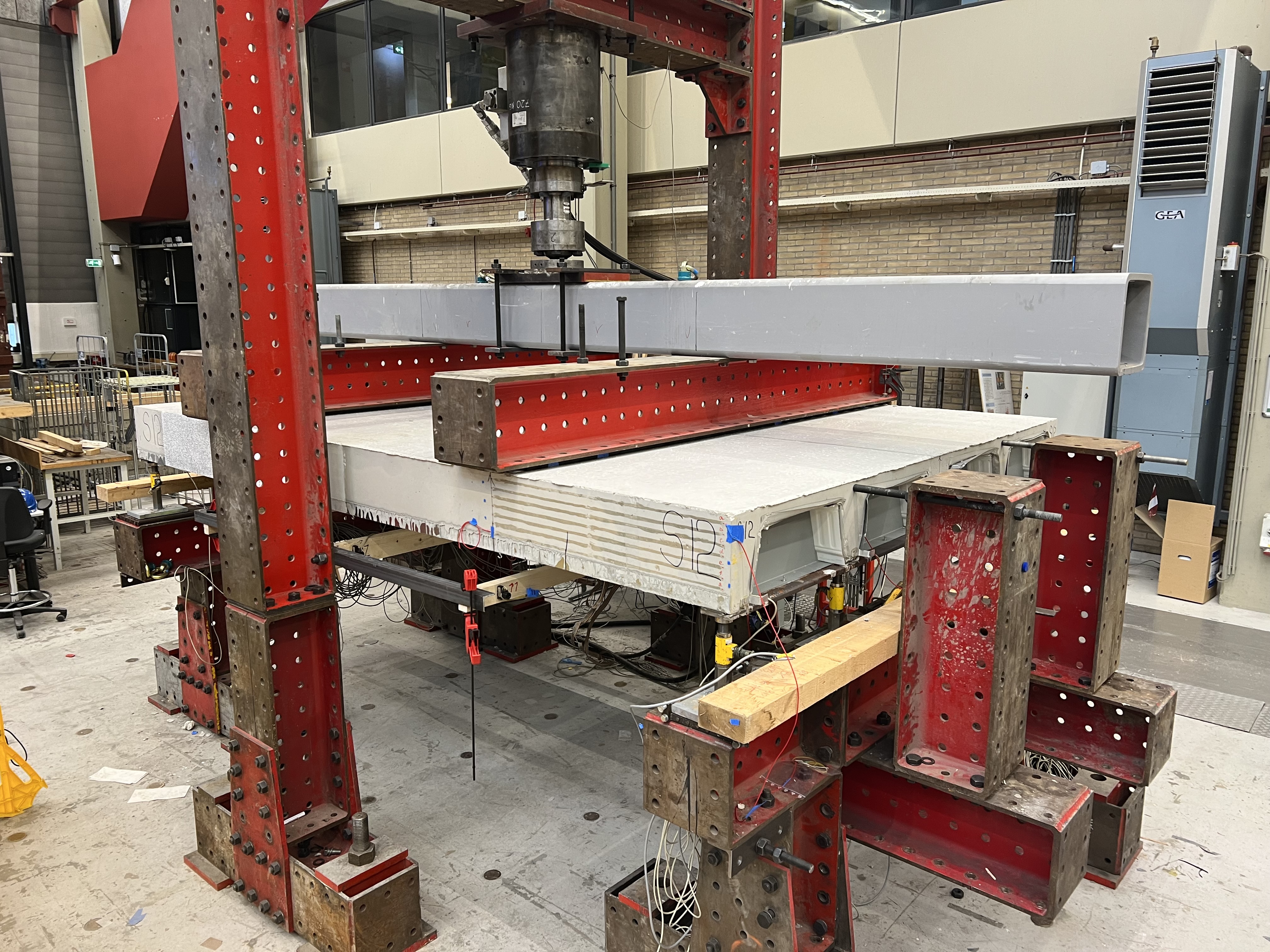Structural Performance of Sustainable Composite Slabs
Project description
This project aims to explore the structural and sustainable aspects of CO2-competitive steel-concrete composite slab systems. Our Team is conducting a series of large-scale experimental studies including assessing full-scale composite slab structural performances under different failure modes, unraveling interfacial properties mechanisms, and exploring the role of sustainable raw materials. Numerical simulations are also developed to help better understand the mechanical responses and governing design parameters. Based on these activities, this project also seeks to systematically evaluate the sustainability of the proposed CO2 competitive composite slabs and tries to build a solid foundation for the industrial implementation of the sustainable steel-concrete composite slabs.
TU Delft investigators: Dr. Florentia Kavoura, Prof. Milan Veljkovic, Yufei Zhang, MSc (PhD Candidate)
Ongoing experiments at TU Delft (2023)
The experiments consist of a total of 14 full-scale steel-concrete composite slab specimens covering a wide range of design features such as employing deep profiled steel sheeting, recycled aggregate concrete slabs, use of rib reinforcement, and details of end anchorage. Advanced monitoring technologies of optical fibers and digital image correlation are used to monitor the strain fields internally and externally in the composite slabs. These experiments could provide both new and valuable insights into the structural performances of CO2-competitive composite slabs.
Furthermore, numerical models concerning the experiments are established with special attention focused on the interfacial properties between steel profiled sheeting and concrete. Detailed simulation is carried out to mimic the influence of the rib reinforcement, embossment details, and end anchorage, trying to evaluate their impact on the macroscale behaviors by tailoring the interface morphology in smaller scales. Based on that, a parametric analysis of the floor system will be conducted to pave the way for theoretical design standards.
Four-point bending experiments and numerical investigation at TU Delft (2023)


Partners
This project is funded by Dutch Engineering.